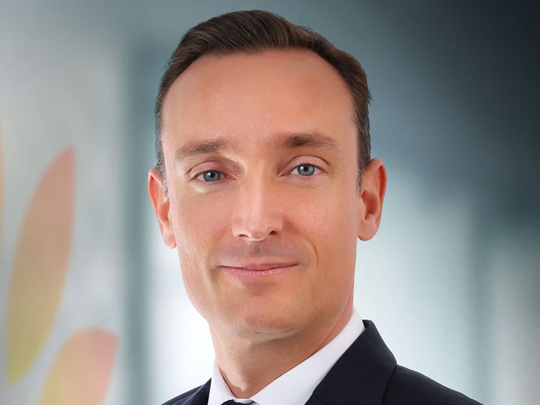
DUBAI
Mashreq Capital has high expectations for 2017.
The investment banking unit of Mashreq expects significant growth in the new year from the new products, and wants to double the assets under management.
Mashreq Capital expects a double digit growth in assets from $1.5 billion currently on expectations that the new products will boost investments from under-penetrated investment industry.
“In 2016, the business performance was in line with that of the previous year, but we expect a significant growth this year due to our new products, and expect business profile would change and moreover in next few years,” Christophe Pella, chief executive officer of Mashreq Capital, told Gulf News in an interview.
Mashreq Capital plans to launch the real estate fund in the next couple of months, which will be managed by Arady Properties. In addition, the investment bank is also planning a on global asset allocation product.
Currently, Mashreq Capital contributes to a small portion of the revenues to Mashreq. “We hope to change that with growth and better management of the business,” Pella said.
Mashreq Capital reported Dh6.2 billion in operating income and Dh1.9 billion in profit last year. The bank had Dh122 billion in assets till December 31, 2016.
Comeback
Mashreq Capital expects investors to come back in fixed income, after some decided to book profits last quarter.
Fixed income yields reached a low over the summer of last year, and in September and October investors took profit.
“We expect people to come back to fixed income because they are at attractive levels now. We are of the view that cautious investors would not be piling too much into global or local equities and they would wait for a correction,” Pella said.
Mashreq Capital expects 10 per cent returns from equities, and expect 4 per cent returns on fixed income.
Another point Pella highlighted was the under-penetration of asset management business in the economy, which is also vital for the success of their business. “We would expect more of asset management industry growth, as the industry is under developed in the region. Too many clients still depend on bank fixed deposits, and most of them don’t provide risk diversification,” he said.
Sentiment
Sentiment of investors, who are their clients, has undergone sea change.
Investors have become pessimistic after getting used to higher rate of returns and better economic conditions from preceding years.
But Pella feels that this pessimism is uncalled for.
“The pessimism is unwarranted, but we have to be realistic, as we don’t expect a buoyant year going forward. We are in a situation where markets are fairly valued, and fundamentals are still strong,” Pella said.
Investors are in a bright spot in the Gulf, according to him. “There was an issue with developed markets where yields were very low because of growth, so I look at the Gulf region with very high growth on global basis. It’s a place where fixed income has a very high potential on return on a global basis,” Pella said.
The Dubai Financial Market General index gained more than 20 per cent in 2016, and has started this year on a strong note, even the returns on fixed income from GCC governments and companies have been reasonable even as they enjoy ratings of any developed nation.
“Oil prices is going to ease the immediate burden on fiscal deficit, which can help governments to do structural reforms typically Saudi Arabia. The global factors are making MENA investments fairly attractive. Many international investors have been underweight on MENA (Middle East and North Africa), and they are ready to come back,” Pella said.
Due to falling revenues from oil, most of the economies in the Gulf have undertaken measures to boost revenues and cut expenditure, including removing subsidies on fuel, electricity among others, even as they plan to implement value added tax next year.










